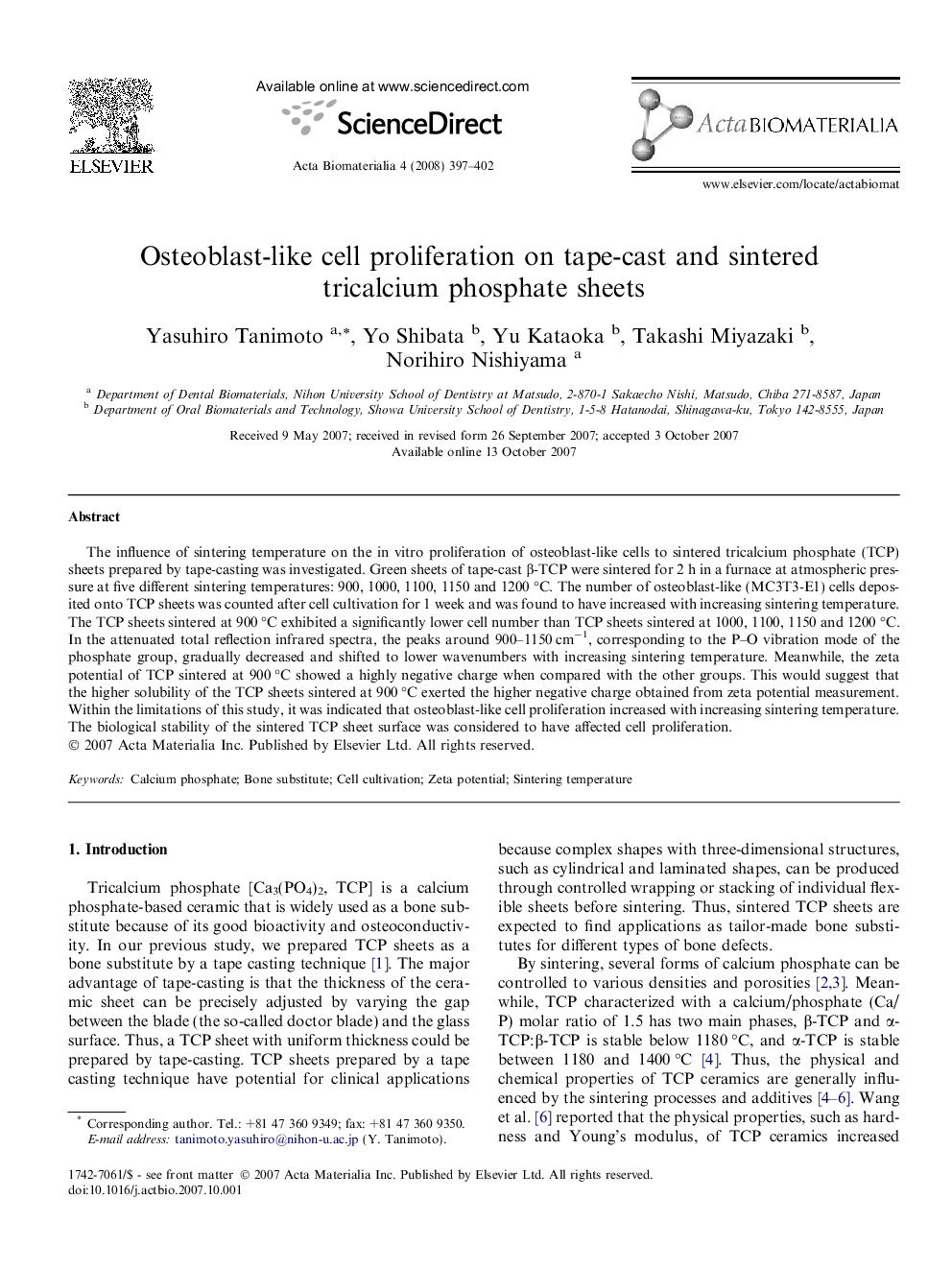| Article ID | Journal | Published Year | Pages | File Type |
|---|---|---|---|---|
| 1850 | Acta Biomaterialia | 2008 | 6 Pages |
The influence of sintering temperature on the in vitro proliferation of osteoblast-like cells to sintered tricalcium phosphate (TCP) sheets prepared by tape-casting was investigated. Green sheets of tape-cast β-TCP were sintered for 2 h in a furnace at atmospheric pressure at five different sintering temperatures: 900, 1000, 1100, 1150 and 1200 °C. The number of osteoblast-like (MC3T3-E1) cells deposited onto TCP sheets was counted after cell cultivation for 1 week and was found to have increased with increasing sintering temperature. The TCP sheets sintered at 900 °C exhibited a significantly lower cell number than TCP sheets sintered at 1000, 1100, 1150 and 1200 °C. In the attenuated total reflection infrared spectra, the peaks around 900–1150 cm−1, corresponding to the P–O vibration mode of the phosphate group, gradually decreased and shifted to lower wavenumbers with increasing sintering temperature. Meanwhile, the zeta potential of TCP sintered at 900 °C showed a highly negative charge when compared with the other groups. This would suggest that the higher solubility of the TCP sheets sintered at 900 °C exerted the higher negative charge obtained from zeta potential measurement. Within the limitations of this study, it was indicated that osteoblast-like cell proliferation increased with increasing sintering temperature. The biological stability of the sintered TCP sheet surface was considered to have affected cell proliferation.
